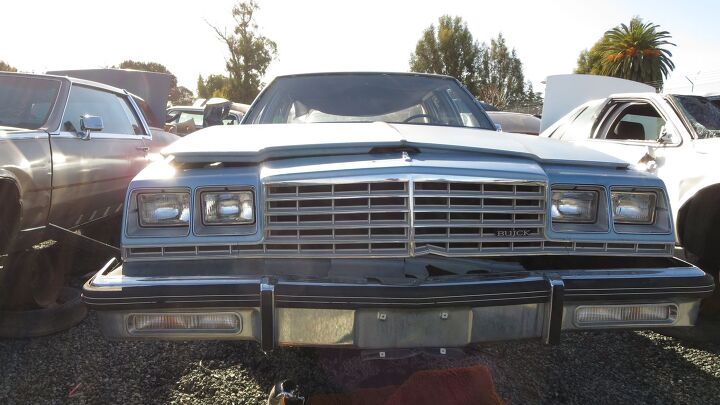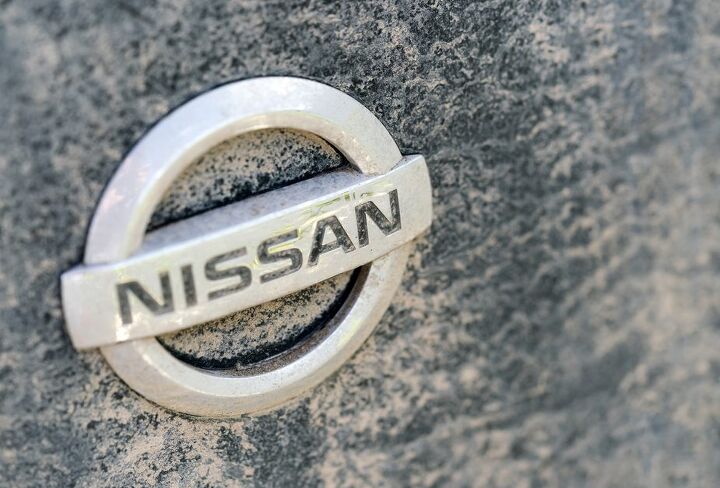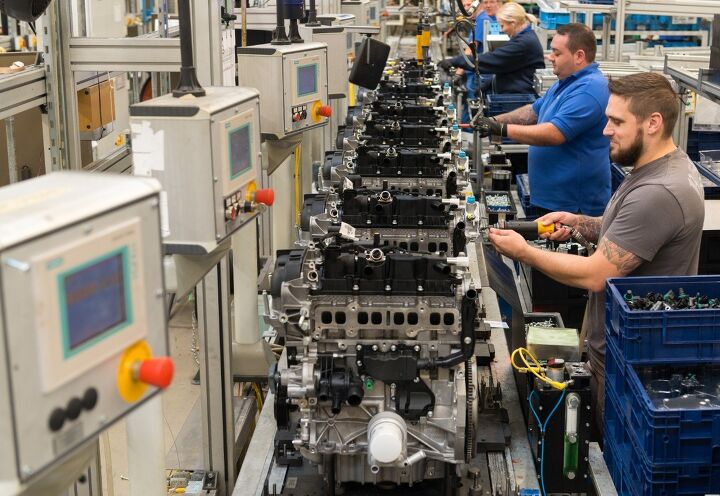#Jobs
Joint Battery Plant a Go for Down-on-its-luck Lordstown
A battery plant mentioned in General Motors’ recently ratified UAW labor contract will soon become a reality in the hard-hit city of Lordstown, Ohio. That locale recently saw the lights go out at GM’s Lordstown Assembly, which closed its doors this spring after the discontinuation of the Chevrolet Cruze. The plant’s now in the hands of a fledgling electric automaker.
On Wednesday, GM announced the spending of $2.3 billion and the creation of 1,100 jobs in Lordstown — a necessary move to supply the automaker with battery packs for its electric vehicle push.
Financial Trouble Breeds Winter of Discontent for Nissan Employees
As Christmas looms, Nissan just placed an unwanted gift in the stockings of its U.S. employees. Sinking sales, combined with a global streamlining of its cash-strapped operation, has led the automaker to give all employees two unpaid days off of work in January, Automotive News reports.
In a memo to employees obtained by the publication, Nissan’s U.S. arm laid out the emergency cost-cutting measures in full. It seems no one gets off the hook.
Auto Industry Eliminating Jobs to Support Electric Vehicle Tech: Report
With environmentalism sweeping through the automotive industry of late, manufacturers are spending oodles of cash to fund the continued development of electric vehicles. Unfortunately, the are doing this during a period where the developed world’s taste for cars has already reached its zenith — or so it seems. Growth is slowing in markets across the globe and cuts have to be made somewhere if the industry players want to keep their bottom line positioned firmly in the black.
A recent report from Bloomberg, estimated that around 80,000 auto jobs will be eliminated in the coming years as a result of electrification — with the majority concentrated in the United States, Germany, and United Kingdom. Though the onslaught of cuts will not be limited to the developed world, nor entirely the fault of EVs.
Mercedes Confirms Job Cuts in $1.4 Billion Restructuring Plan
On Thursday, Daimler made an announcement confirming earlier reports that it plans to cut roughly ten percent of its management staff as part of a broader restructuring plan. Financial hardship has become a sign of the times for the auto industry. Most sizable manufacturers are coming off an investment spree aimed at developing new-energy vehicles, autonomous driving systems, and connected services. Unfortunately, those commitments came at roughly the same time the world’s largest auto markets started to collectively plateau.
A broad approach no longer seems feasible for all but the absolute largest automakers on the planet. We’ve seen many attempt to downsize through restructuring or by entering inte partnerships with other firms to share costs — sometimes both. Knowing this as well as anyone, Daimler issued two profit warnings this year as Mercedes-Benz was fined $960 million in an emissions-cheating settlement while hemorrhaging cash through EV investments.
Mercedes-Benz Reportedly Planning to Cut Management, Freeze Wages
Reports have come in from Germany that Mercedes-Benz has decided to reduce its management staff by around 10 percent globally. On Friday, German newspaper Suddeutsche Zeitung wrote that Daimler CEO Ola Källenius wishes to delete around 1,100 management posts while freezing wages for all 300,000 German employees — citing internal documents from the automaker’s works council.
Handelsblatt also said it intercepted a copy of the letter, with both outlets claiming Daimler would elaborate further on the plan this Thursday. While Mercedes said it couldn’t comment on the matter, its restructuring push was no secret, even before Källenius took over as chairman in May.
Keeping Tabs: Germany Promises One Million EV Charge Points by 2030
German Chancellor Angela Merkel announced Sunday that her country will soon have one million charging stations ready for electric cars. Her words came ahead of numerous meetings with German automotive manufacturers on how best to spur EV adoption in Europe.
Pivoting to zero-emission vehicles has many worried about job losses. The United Auto Workers issued a nearly 40-page report on the implications of electric vehicles and how to address them during its negotiations with General Motors — after the automaker said the battery plant it was eyeballing in Ohio would require hourly employees to take pay cuts. The Center for Automotive Research has also indicated that EVs simply don’t take as many man hours to manufacture. It’s even mentioned in the Trump administration’s fuel economy rollback proposal — an effort bent on furnishing cheap automobiles and American jobs.
Germany is worried too, with groups echoing similar employment concerns. To mitigate those fears, while encouraging electrification and maintaining jobs, the nation wants to take its 20,000 charging stations to 1 million.
Eulogy Time: As Ford Flex Passes Into History, an Automaker Remembers the Box and the Bucks
For a model that encompassed a single (but very long) generation, the Ford Flex made a big impact on Ford Motor Company’s image, to say nothing of its fortunes.
You probably don’t remember June 3rd, 2008, but that was the day the boxy, funky Flex first rolled off the assembly line at Ford’s Oakville, Ontario plant. You probably do recall the events of Monday, October 28th, 2019, however, and one thing that should stick with you is this: Ford has officially pulled the plug on the Flex. A handful of models will roll out until some point in November, but today marks the big wind-down.
With the imminent loss of the Flex and the recent death of its Lincoln MKT platform mate (which wrapped up production earlier this month), the automaker’s lineup, like that of so many others, stands to become just a little more devoid of originality.
UAW Bargaining to Start With GM; Members Authorize Strike
With less than two weeks left before contracts with Detroit Three autoworkers expire, the United Automobile Workers has chosen General Motors as the first company to enter bargaining talks. What occurs between the UAW and GM will set the stage for subsequent contracts with Ford and Fiat Chrysler.
Going into the talks, which UAW does under a dark cloud born of its bribery and kickback scandal, the union comes armed with a strike authorization approved by its members.
Flint's Buick City Complex Could Once Again See New Jobs, but There's a Catch
The closure of Flint, Michigan’s sprawling Buick City complex was emblematic of the destructive transformative forces at work in the American auto industry in the late 20th century and early 21st. The 264-acre facility was once the largest automotive plant in the world, a status that did nothing to ensure its continued survival. It closed for good in 2010.
Now comes word that the birthplace of so many LeSabres could sprout manufacturing jobs in the near future — 2,000 of them. Great news for Michigan’s automotive workforce and Flint’s coffers, but the plan won’t get off the ground without the Postal Service’s approval.
As Nissan Readies Cuts of All Kinds, Does Any Model Have Momentum?
As you read last week, Nissan is busy sharpening its axe, ready to chop the company back to sunnier balance sheets. Some 12,500 positions, or more than 9 percent of the automaker’s global workforce, are poised to disappear as Nissan attempts to recover from a serious slump.
News of the cull came on the heels of a dismal first-quarter earnings report in which the company revealed a net income loss of 94.5 percent. Its operating margin? A prosciutto-thin 0.1 percent, down from 4 percent a year earlier. Something needs to give.
What will give are jobs, a lot of them, and numerous car models — roughly 10 percent of the brand’s global lineup by 2022, the automaker said. Most of those models will be el-cheapo offerings in developing markets. As for sales, the automaker finds itself sliding in a major market where bright points of light are hard to find.
Let’s search for those stars.
Nissan's Financial Report Worse Than Expected
On Wednesday, we reported Nissan was preparing a financial report that was presumed to involve quarterly profit falling by around 90 percent — necessitating roughly 10,000 job cuts. At the time, Nissan gave some vague confirmation that the estimates were accurate while halfheartedly attempting to refute them.
However, when the official numbers came out on Thursday, the reality was worse than initially assumed. Nissan reported an almost 99-percent drop in operating profit in the latest quarter, citing falling sales in every major market except China. Rather than 10,000 job cuts, it’ll require 12,500.
Cuts Coming to Ford Crossover Plant: Union
Ford Motor Company’s Oakville, Ontario assembly plant will soon see a reduction in manpower, according to the union representing Canadian Detroit Three autoworkers. The looming changes represent the latest blow to that country’s fragile car building presence.
For Ford, the cuts outlined by Unifor Local 7070 president Dave Thomas in a web post this week are an inevitable consequence of evolving lineups and consumer tastes. The company can’t build the Ford Flex forever.
Ford Trimming 12,000 European Jobs Before 2021
Back in January, Ford provided the preliminary details for its European restructuring plan. The company had been losing money there for years and didn’t want it to be remain a liability as it dumped cash into autonomous research and electric vehicle development. With aims to achieve a 6-percent operating margin within the region, the automaker’s plan to tidy up the business was put into motion.
Thus far, Ford has ceased production at three plants in Russia, cut shifts in Germany and Span (rest in peace, C-Max), and has earmarked additional facilities in France and the United Kingdom for closure. By the end of next year, the automaker expects to have cut 12,000 jobs related to its European operations.
Ford Slices Into European Workforce; UK Engine Plant to Close
As Ford Motor Company attempts to turn around its money-losing overseas business, its manufacturing footprint — and workforce — continues to shrink. In the UK, the automaker plans to end operations at its Bridgend, Wales engine plant by September 2020, citing “significant underutilisation” of the facility.
The Bridgend plant builds Ford’s 1.5-liter EcoBoost four-cylinder and unfamiliar-to-Americans 1.5-liter three-pot, but demand is drying up.
General Motors Drops More Cash for Pickup Production
With pickups and crossover vehicles serving as the lifeblood of domestic manufacturers, General Motors is setting aside $24 million for its Fort Wayne truck assembly plant. While the investment isn’t expected to result in any job creation, it does aim to boost production volume of the new Chevrolet Silverado and GMC Sierra in Allen County, Indiana.
According to GM, combined sales of the Chevrolet Silverado 1500 and GMC Sierra 1500 crew cab pickups, which launched last year, were up 20 percent in the first quarter of 2019 versus the year prior. This isn’t surprising, considering new versions of popular models typically see an uptick in sales, but General Motors says it anticipates another sizable increase in demand over the second quarter and wants the facility to be ready.






























Recent Comments